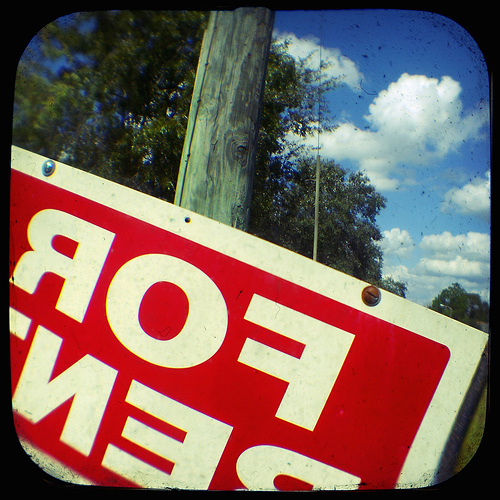When I started Investing Architect a couple of years ago, I wrote a controversial post called Why Equity doesn’t matter that caused quite a stir. It was inevitable. A conservative, prudent, “low and slow” real estate investing guy (by his own admission) was advising his readers that built in equity was irrelevant. How could this be, considering what happened to real estate markets in 2008 with millions underwater on their mortgages? Wouldn’t it be more conservative and prudent to only purchase properties with built in equity – in case you have to sell the property due to another deteriorating market?!
There’s a powerful, fear-driven myth among long term real estate investors that says: Buying an investment property with built in equity is the best and only way of minimizing risk and playing it safe. In today’s post, I will dispel that myth.
1. Before we go any deeper, it’s very important that you have a clear understanding of equity’s true nature. Equity is a Snapshot that tells you what you would make if you were to sell the property today – and nothing more. This short term indicator provides zero information about what that property will do in the future. Don’t believe me? Most of those people underwater on their mortgages post recession had plenty of “equity” in their properties just a few short years prior. And sadly, the equity they thought they had, didn’t minimize their risk of being underwater in the future.
2. Next, the reason why investors feel that equity minimizes their risk is because it gives them an Exit. In the event that the stuff hits the fan, they have a better chance of cutting bait and getting out from under the property. There’s one major issue with that line of thinking: It doesn’t reflect the mentality of a long term investor. That is, when you assemble a long term real estate portfolio, that implies that during your hold period there will be some good markets and some not so good ones. As a matter of fact, that’s one of the few things you can count on. So if your first tendency during a trough in the market is to sell and get out, I have a much better strategy for minimizing risk to suggest to you. Don’t make the investment in the first place. If the risk that’s involved in holding an asset during a bad market is too much to handle, the best course of action is to not take that risk to begin with.
3. Further, let’s consider the reasons why a property might have built in equity. Typically, a property will sell below market value because it’s distressed. This could be because it’s a bank or government owned foreclosure, short sale, or simply a motivated seller in distress. In all those cases, you can count on the presence of deferred maintenance. And I’m not just referring to items that are in immediate need of repair but also to systems that will break faster because they have not been maintained well up until that point. This will lead to two things: Reduced returns due higher out of pocket investment and the evaporation of that built in equity you thought you had.
Since equity was the master criterion for selecting your investment property and not quality of location, neighborhood, floorplan and maintenance, you actually increased your risk and lowered your returns. And all that for “the equity” – most of which disappeared eventually anyway.
So, if equity won’t reduce risk, what will? That’s simple: Cashflow and Quality.
1. Here’s an illustration how positive cashflow minimizes the risk to the investor. Say you own an investment property worth $125,000 that while rented for $1325/mo produces $400/mo in positive cash flow after expenses and mortgage payments. Think about that for a second. Rents could plunge by 30% – and you’d still be breaking even. Talk about insulation against a seriously depressed market. Or look at it a different way – in a market with scarce tenants, you could drop your price by 30% and the property would still be paying for itself. But what if there’s no tenants? There’s no such thing as “no tenants” – just no tenants at a given price. People have to live somewhere regardless of the economical situation. But what if Armageddon strikes… In that case my friends, we have bigger problems than our real estate investing portfolio. 🙂
2. Quality is the ultimate risk minimizer. When you buy quality properties at a fair price – without overpaying – they stay rented to good long term tenants producing the kind of income stream that allows you to ride a bad market while making double digit returns and exiting the investment when it’s most beneficial for you. In short, when you buy quality, you buy patience. If you’ve got patience, you can invest on your own terms with lower risk.
Finally, there is one important idea with which I want to leave you. There’s nothing wrong with buying a property below market with built in equity – on the contrary, it can be quite nice. The problem arises when long term investors use equity as the primary reason to select (or avoid) an investment property. That’s where they go astray believing the myth of risk reduction through buying below market. Purchasing quality properties in great locations that have solid positive cash flow is the best way to minimize risk in your long term real estate investing portfolio. Equity is mainly a nice additional bonus if you can get it.




I completely agree. When I started out more than decade ago I’d go after the junkers in blue collar neighborhoods because they were distressed and had loads of equity. That is what I was taught by the gurus. I eventually saw the light and migrated into quality properties with tenants who hold professions.
A decade later and the one junker that I still have left has gone nowhere, in fact it has actually gone down from the after repair fair market value when I purchased it to what I paid for it. To be fair it cash flows like a gold mine but the tenants are terrible.
In contrast several of the quality properties I purchased have gone up 20% to 30% in the past few years. But that is nothing compared to the unmitigated bliss of having good tenants and rising rents during that time.
I can tell you from that experience that I’d much rather have a quality property at a fair market price than a junker at a steep discount.